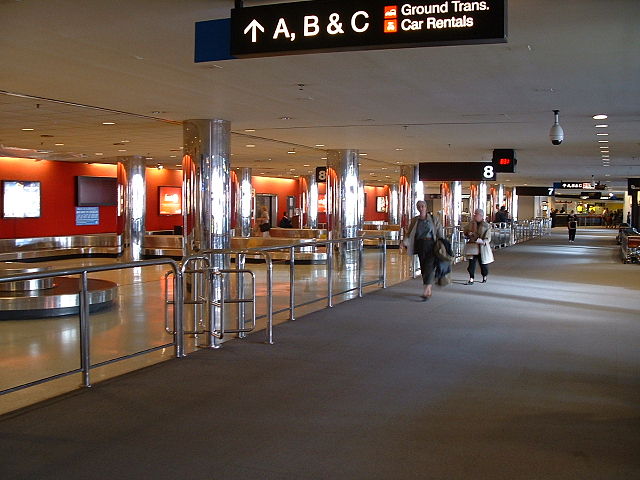Can’t Hardly Wait

Worst. Thing. Ever.
You’ve probably seen or heard someone say that, usually in a half-facetious, half-hyperbolic sense. (Or because you’ve watched the Simpsons.) When (real) people use that phrase, isolated as three individual pseudo-sentences for effect, they’re not talking about actual terrible things like famine, the plague, or the Nazis. They’re talking about the minor inconveniences that bother us in an amount disproportional to the actual harm we suffer. A quick search of Twitter elicits things like “not having somewhere to park my car,” “chapped lips,” “having short hair on rainy days,” and, uh, this, as examples of things that were considered the “worst thing ever” by the Twitterer in question.
Here’s another one: waiting.
Waiting is a particularly fiendish terror which evokes the hyperbole spoken of above. People bemoan having to visit the Department of Motor Vehicles, grumble when YouTube videos take more than a half-second to load, and, as some airports executives in Houston learned, complain when it takes too long for their bags to come. We’d rather do anything other than, well, do nothing.
Unfortunately, we can’t eliminate waiting all together, and in some cases, even a relatively short wait may be too long. That’s what the Houston airport execs learned when they answered passengers’ complaints directly. Customers were waiting for a long while, perhaps as long as a half hour for their bags to arrive. The airport beefed up staff and cut the wait time down to eight minutes — as the New York Times noted, that’s “well within industry benchmarks.” Yet the complaints just kept coming. That’s kind of ridiculous — it’s only eight minutes! — but regardless, customers still weren’t happy. To make matters worse, there wasn’t much the airport team could do to get the bags back to the flyers in less time. Eight minutes from disembark until the bags hit the carousel was as good as it was going to get.
But “deal with it!” is bad customer service and really, no one wants to hear complaints from customers. So, as the Times explained, the powers that be at the Houston airport decided to just trick the passengers into thinking they weren’t waiting. They observed that customers at other airports weren’t complaining about baggage claims that weren’t all that close to the arrival gates, yet the Houston airport only required passengers to walk for about a minute to get their stuff. On the other hand, Houston’s customers were very much upset about having to stand around for seven of the eight minutes. It wasn’t the eight minute delay, itself, that was the problem — it was that people hated the idea that they were wasting time, with nothing to do.
The solution? The airport flipped everything around, moving the arrival gates and the baggage claim carousels further apart. Much further. The formerly one minute walk to get ones bag was now six minutes, and the idle wait only about two. The travelers were occupied for longer and therefore less bored, and the complaints disappeared.
Bonus fact: The International Air Transit Association assigns three letter airport codes to each airport, which are typically comprised of the first three letters of the city the airport is located in. There are many exceptions, though, especially in cities with multiple airports or where the first three letters of the city would be ambiguous. In those cases, a close-ish approximation of the airport’s or city’s name is used instead. New York City, for example, has both LaGuardia and Kennedy, which are LGA and JFK, as “NYC” would be insufficient to differentiate between the two. Similarly, nearby Newark uses EWR because “NEW” could be a lot of places. (Besides, you can’t use N — the Navy has that reserved.) But what about LAX in Los Angeles? The X doesn’t stand for anything — it’s just a placeholder. “LA,” the airport’s original code, is unambiguous, but when the three-character codes became standard, the airport needed to expand its code. It adopted a meaningless X at the end.
From the Archives: Express Flight: The world’s shortest regularly-scheduled flight. You can watch the whole thing!
Related: “White Whine: A Study of First-World Problems” by Streeter Seidell. A tongue-in-cheek look at stuff like the tweets linked to above. 4.5 stars on 11 reviews.
